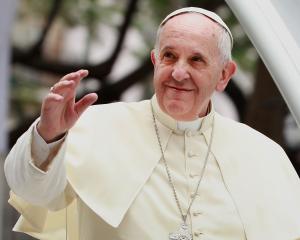Not only will she face a barrage of abuse and innuendos from Republican presumptive nominee Donald Trump, Mrs Clinton also needs to convince the supporters of Bernie Sanders - her long-time primary opponent - to switch their support from him to her.
Winning those supporters will be the first and possibly hardest task to complete and Mrs Clinton will want to do that as early as possible.
For his part, Mr Sanders is determined to carry on his campaign right through until the Democratic conference and pointedly did not endorse Mrs Clinton, or even acknowledge her win this week, when he spoke after losing the California primary.
The Democratic Party of the United States has passed another milestone by selecting Mrs Clinton.
Eight years ago, the party selected its first African American candidate, Barack Obama, who has gone on to serve two terms as President of the US.
There are millions of women in the US now hoping Mrs Clinton can finally shatter the class ceiling in politics by becoming president in the November 8 election.
Democrats in both the Clinton and Sanders camps believe some specific olive branches will be offered to Mr Sanders in the weeks ahead, including compromises on the issues platform to be adopted at the party's July nominating convention.
It seems unlikely the two can work together in a president/vice-president-style campaign.
However, Mr Sanders may be offered the significant chairman of the Budget committee role should the Democrats regain control of the Senate.
Mrs Clinton will have taken the long road if she finally gets to the White House as president.
Her steely fortitude in the campaign has inspired older women, black voters and many others who see in her perseverance something of themselves in their own life journeys.
Mrs Clinton's durability may be the kind needed to defeat Mr Trump.
For 14 straight years, and 20 in all, she has been named the woman Americans admire the most, according to an annual Gallup poll.
But her campaign, and the controversy over her use of a private email service as secretary of state, have taken their toll.
One of the obvious issues for the wife of former president Bill Clinton is being seen as out of step with younger voters and an angry electorate demanding more than just the competence and hard work she is promising.
These are warning signs as Mrs Clinton has struggled to find a simple message for her campaign.
What she believes in her heart about the future of America and its people remains a mystery.
One of the biggest points of scepticism heard from Sanders supporters, and even lukewarm Clinton supporters, is whether she really means the things she is saying in the primary.
The next two weeks is her opportunity to give answers to those doubters.
In that time she needs to double down her efforts to woo the supporters of Mr Sanders.
President Obama can play a pivotal role as a deal maker between the two and, despite the stubbornness of Mr Sanders, he will come to realise the future of the party is at stake.
A Democrat senator, Mr Sanders has been an isolated figure in the House, mainly because before he joined the party in 2015, he was the longest-serving independent in US congressional history.
Although written off at the start of his primary campaign, he has caught the public mood in the US.
Despite Mr Trump's entreaties to Sanders supporters they are welcome in his campaign, it is Mr Trump who is likely to galvanise Democratic support behind Mrs Clinton.
From now to the July convention, her every move will be closely watched for a softening in her so-far flinty approach to the campaign.












